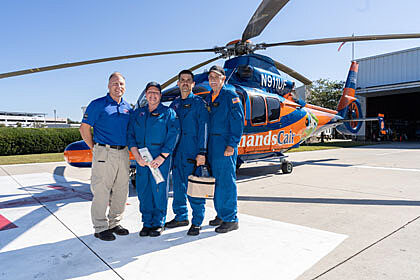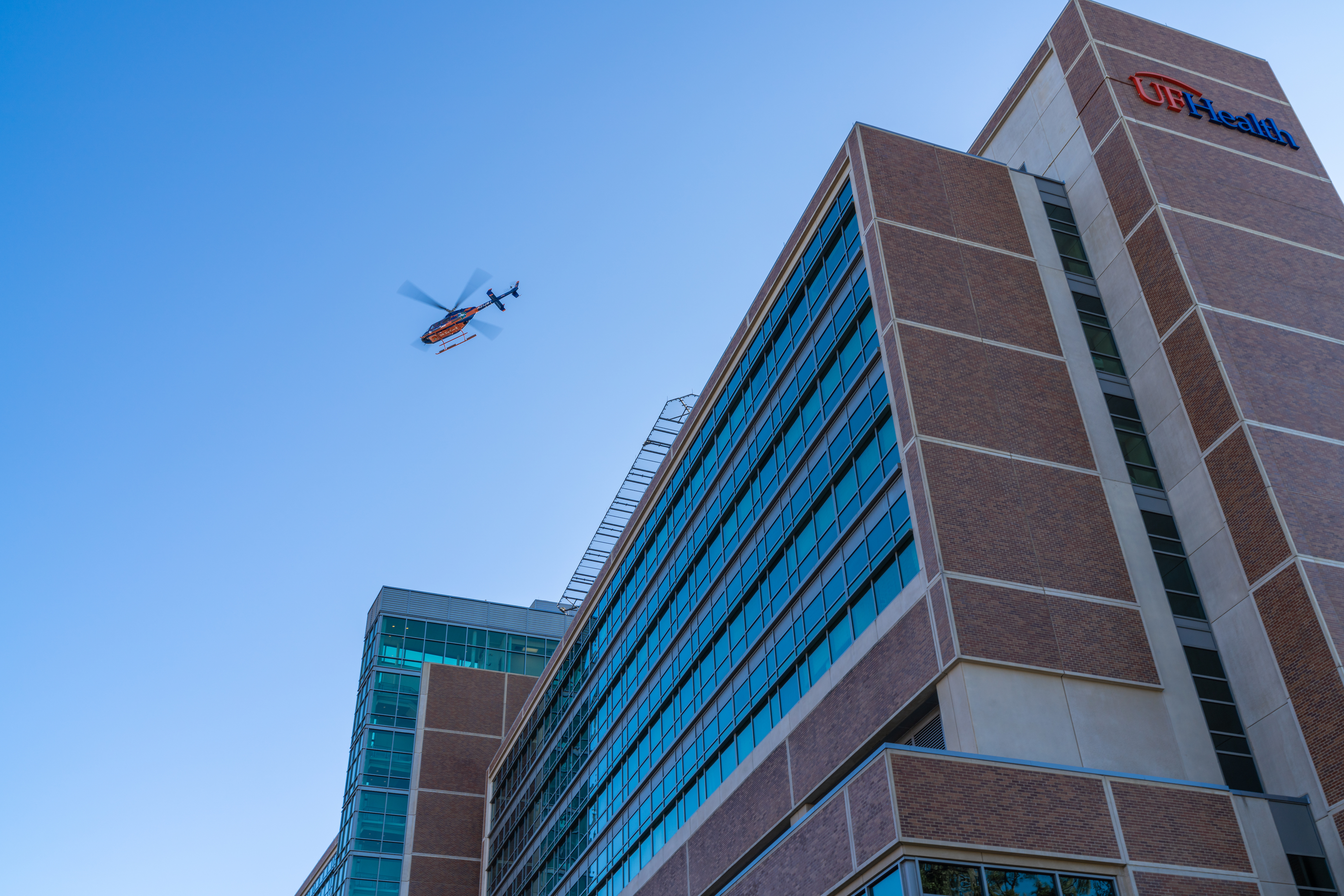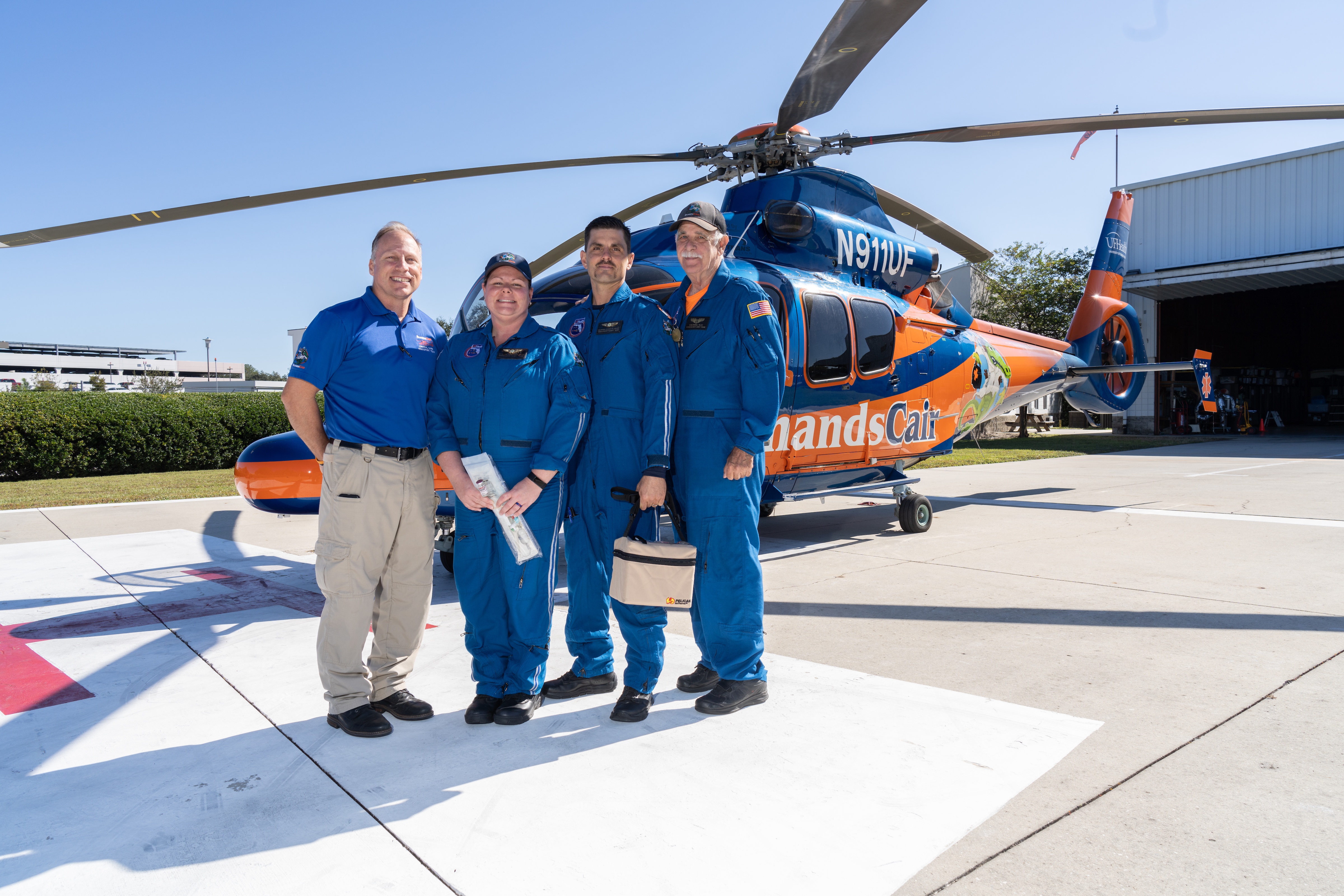Saving Lives in the Air

UF Health ShandsCair performs the program’s first in-flight prehospital blood transfusion.

After over a year of preparation, the UF Health ShandsCair team performed its first in-flight prehospital blood transfusion. Don Irving piloted the flight, where Staccie Allen D.N.P., APRN, EMT-P, CFRN, C.C.P., and Jesse Blaire, EMT-P, C.C.P., were able to give a patient one unit of blood to help stabilize the person’s blood pressure and heart rate before landing.
“You see the benefits of providing blood quickly in tons of military literature, and much of what we do is derived from that,” Allen said. “We realized how important access to blood is before getting to the hospital, and research shows how much of a difference it makes. It makes an incredible impact on patient outcome.”
In early 2018, chief flight nurse Todd Brooks, B.S.N., R.N., EMT-P, began advocating for carrying blood inflight. This practice had been discussed within the program before, but it required the involvement of and assistance from multiple teams within UF Health before implementation. This included obtaining a grant for a blood refrigerator through the UF Health Shands Hospital Auxiliary and establishing new protocols within the blood bank. Finally, everything fell into place.
“It was a strong step forward for UF Health to allow and support the initiative to carry blood in flight,” Brooks said.
UF Health is at the forefront of the movement locally, as the practice becomes more common on medical helicopters around the country. ShandsCair’s new service will benefit many types of patients, including those with low blood pressure and a high heart rate and/or suspicion of internal or external bleeding. Carrying blood gives the team a chance to provide a new level of care and buy patients more time before even arriving at the hospital.

The ShandsCair 1 team now boards every flight with blood, plasma and medication to slow bleeding. The materials are stowed in a compact cooler kept in the blood refrigerator to monitor their temperatures and are easy to grab on the go.
“We want to have all five helicopters carrying blood and hope to treat medical patients in addition to trauma patients,” Brooks said.
About the author
